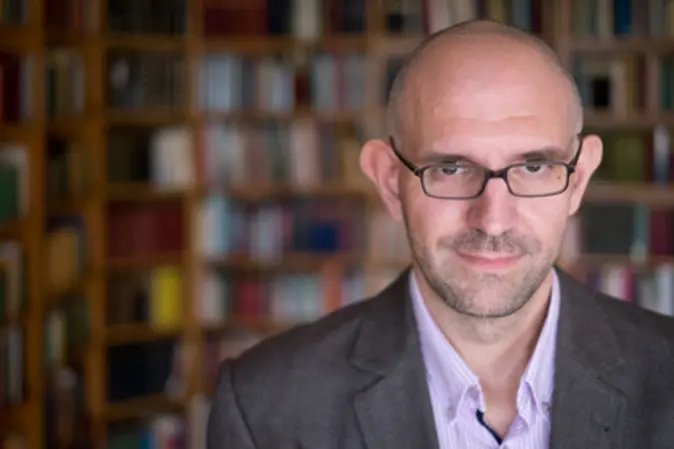Prestigious ERC Starting Grant for Bamberg Historian
For the first time, an ERC Starting Grant has been awarded to a scholar at the University of Bamberg. On 13 November, the European Research Council (ERC) approved funding for the project titled The Proceedings of the Ecumenical Councils from Oral Utterance to Manuscript Edition as Evidence for Late Antique Persuasion and Self-Representation Techniques. The project is one of the few successful proposals selected by the Council’s humanities panel from among the excellent field of applicants from across Europe. Over the next five years, the ERC will provide Dr. Dr. Peter Riedlberger with 1.497.250 euros in research funding. This is the first ever ERC Starting Grant awarded to a German project in the field of ancient history and also the first in the field of the humanities and history that has gone to a Bavarian university not based in Munich. In addition to its Starting Grants, the ERC also awards Consolidator and Advanced Grants. The latter was awarded to the Bamberg sociologist Hans-Peter Blossfeld in 2010 for his eduLIFE project.
With their Starting Grants, the ERC supports up-and-coming researchers throughout Europe and the award is intended to enable these scholars to establish an independent research career. Recipients are selected in a two-stage process in which an initial preselection of submitted proposals is made by a twenty-member international panel. Projects selected in this first stage are passed on to external experts for evaluation: these experts assess a proposal’s academic substance as well as the candidate’s prior accomplishments. Final selection is made based on these experts’ reports and on candidates’ presentations to the ERC in Brussels. Typically, the percentage of funding for projects in the social sciences and humanities is eight percent, and the purely humanities-based portion is even lower.
Top-level research on Late Antiquity
“Due to its strict selection criteria, its renown and the significant amount of funding, the ERC Starting Grant is the most sought-after award at the European level,” says University President Prof. Dr. Dr. habil. Godehard Ruppert. “This accomplishment highlights the University of Bamberg’s particular strength in the humanities.” Riedlberger explains that the decision to base his proposed ERC project in Bamberg was a strategic one: “The distinguished ancient history department with Prof. Hartwin Brandt, one of the research community’s foremost scholars of Late Antiquity, the strength of Greek and Latin programmes, the patristic theology programmes with a focus on Middle Eastern languages, as well as the one-of-a-kind Institute of Archaeology, Heritage Sciences and Art History all make Bamberg – more than almost any other place in Germany – a location particularly suited to conducting top-level research on Late Antiquity.” He also points out that the personal support and trust shown by the university’s subject representatives and governance in all matters was also a key reason for deciding on Bamberg.
As part of the ERC project beginning in April 2016, Peter Riedlberger will be heading a research team that will explore the records of the late antique ecumenical councils from a historical and cultural studies perspective. The councils’ proceedings were recorded and published as part of the so-called records. Aside from these, exceptionally few verbatim records have been passed down from antiquity. “The recorded council minutes occupy an absolutely exceptional position in the late antique source material,” says Riedlberger. They thereby afford classical scholars valuable insights directly into late antique argumentative techniques and decision-making processes.
Personal data: Peter Riedlberger, born in Aichach in 1973, studied ancient history in Munich, Freiburg and Paris. In 2009 he completed a PhD in Latin Philology at the CAU Kiel and in 2012 he received a doctorate of natural sciences in the History of Sciences from the LMU Munich. Following work and research positions in Munich, at the Warburg Institute in London, in Tel Aviv and at the University of Tübingen’s Faculty of Law, he has been conducting his research at the University of Bamberg’s Trimberg Research Academy since 2015.
Notice
This press release was written by Samira Rosenbaum for the University of Bamberg’s press office and was translated by Benjamin Wilson. It may be used without restriction for journalistic purposes.
Please direct all queries or image requests to the press office either by email or telephone at medien(at)uni-bamberg.de, or +49 (0)951-863-1023, respectively.
